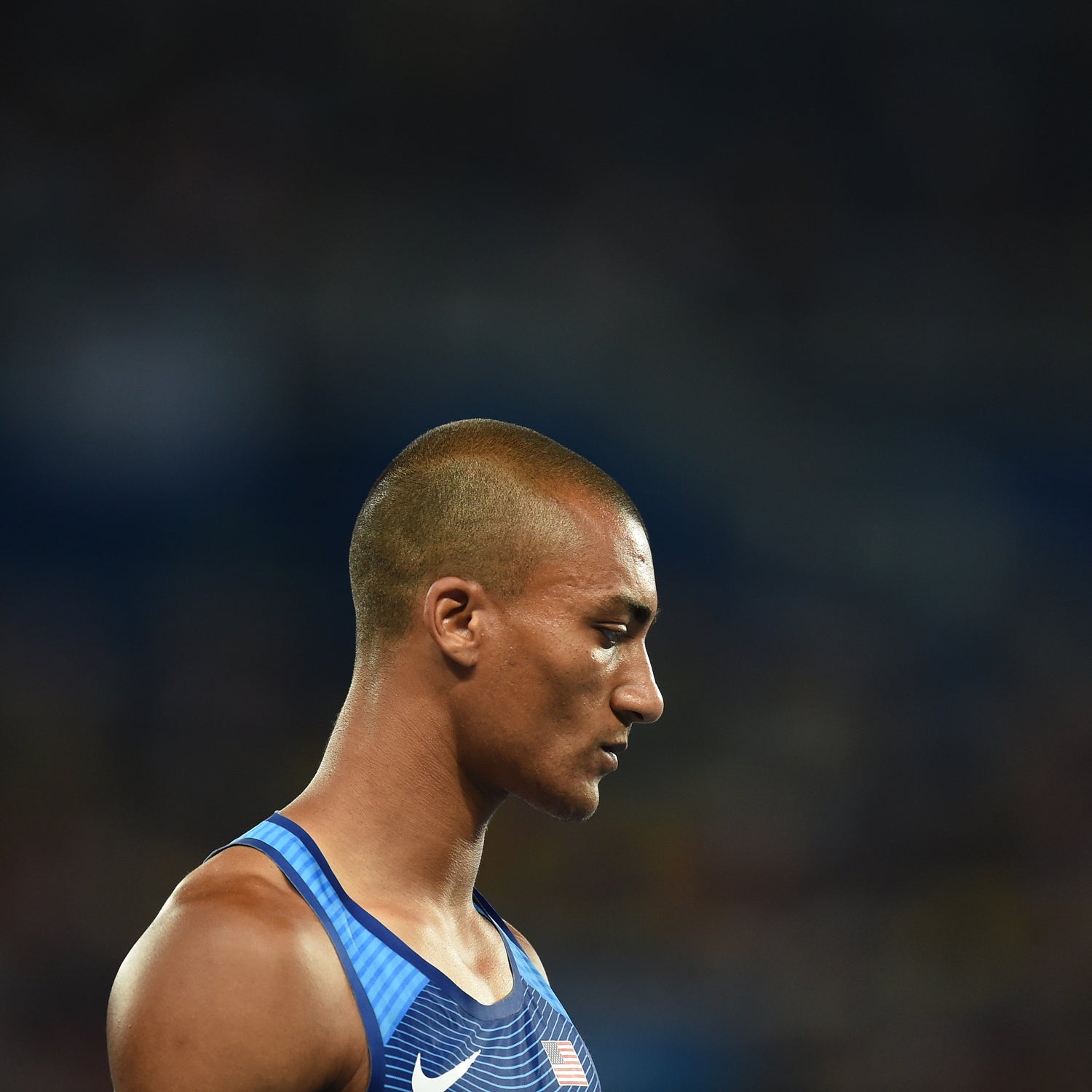On August 12, NBC showed world-record-holding decathlete Ashton Eaton cheering for his wife, Brianne Theisen-Eaton, who was competing in the heptathlon. Theisen-Eaton is Canadian, and Ashton, arguably the United States’ (and the world’s) greatest athlete, wore a red Canada hat in support.
The Internet lost its collective mind.
“Ashton Eaton is a traitor,” . “My heart is broken,” .
As the fury grew, Eaton fired back against his critics, , “Have I not represented USA well?… I support the country that produced my wife; who [are you to] shame me?” He : “Are your grandparents from another country? Will your grandchildren be? What then?”
Most of us can immediately dismiss this outrage as the Internet being the Internet. But what #Hatgate should remind us of is a fundamental truth of the modern Olympics: Despite their appearance, the Games have little to do with patriotism.
In our increasingly globalized world, the idea of nationalism in sports is becoming a quaint, archaic notion. On Wednesday, that of the 44 Chinese-born table tennis players competing in Rio, only six are competing for China. There are numerous examples of nation-switching in other sports as well: On Sunday, the small Middle Eastern country of Bahrain won its first-ever gold medal when Kenyan-born Ruth Jebet won the steeplechase. , she defected because she couldn’t afford schooling in her native country.��“We talked with the [Bahrain] federation and they said, 'You can come, and we will pay for everything,’” Jebet said.
The U.S. also , with more than half of this year’s men’s track and field distance running team born in East Africa.
The International Olympic Committee isn’t thrilled about nation switching, but has basically thrown its collective hands up. “Legally, we can't stop it, but that doesn't mean we love it,” IOC president Jacques Rogge . “I have reservations in some places about people who have support but still change. Let me tell you very frankly, I don't like that.”
If not for the love of their country, then, why do Olympians compete? Because they want to be the best, and the Olympics, for the vast majority of sports, represent the highest level of competition in the world.
Alexi Pappas, an American with Greek heritage, announced in the spring that she’d be competing for Greece at the Games.��She that the impetus was to “achieve my goals of running at the highest level and impacting the most people.”
“I do run for personal pride, but I also run to inspire and showcase an amazing sport,” middle-distance runner David Torrence ��regarding his decision to represent Peru in the 5,000��meters. Torrence is a fixture in the U.S.’s track scene and represented the U.S. internationally as recently as 2015 at the Pan American Games, where he won a silver medal in the distance.
To Pappas, Torrence, and all other��Olympic athletes, the Games represent competition. It represents a global stage, a fulfillment of a dream, an accomplishment of a goal.��And nationality is a means to that end.��
The brand of nationalism on display at the Olympics—a choreographed parade of neat little nations in matching uniforms—is a falsehood when you examine the athletes themselves. In our modern world, everyone is from everywhere. Homogeneous outfits may be easy to sell to viewers, but what's on display is actually a patchwork of��individual athletes eager to take part in the spectacle that is Rio.
So is switching��allegiances��to compete contrary to the spirit of the Games? Maybe, if you judge athletes by��how the Olympics were once: when the world's boundaries and cultures, without the Internet, were physical and clearly defined. But as the world has changed and those borders have become more porous, the stage upon which the uniforms are worn has become more important than where they're stitched.


